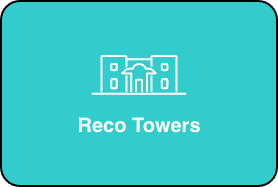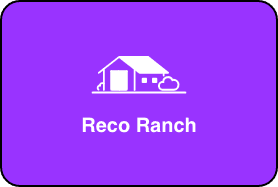How Transitional Housing Programs Foster Recovery


Introduction to Recovery and Sober Living
Understanding Substance Use Disorders
Substance use disorders (SUDs) are complex conditions characterized by the compulsive use of substances despite harmful consequences. These disorders can disrupt an individual’s ability to function in their daily life, affecting their work, health, and relationships. The path to recovery from substance use disorders is often challenging, requiring a multifaceted approach for effective treatment and sustained sobriety. It’s crucial to understand that substance use disorders are medical conditions, not moral failings, and they can affect anyone regardless of age, gender, or social status. Recovery is a journey that often involves addressing the psychological, physical, and social aspects of an individual’s life to foster lasting change.
The Importance of a Stable Environment in Recovery
A stable and supportive environment plays a pivotal role in the recovery from substance use disorders. For many individuals in early recovery, returning to their previous living situation may not be conducive to maintaining sobriety. Factors such as unresolved conflicts, exposure to triggers, or association with substance-using peers can significantly increase the risk of relapse. This is where a sober living environment becomes invaluable. Sober living residences offer a sanctuary that bridges the gap between an inpatient treatment facility and fully independent living. In these environments, residents are surrounded by peers who share similar goals of sobriety and recovery, creating a community of support and understanding. A stable, substance-free living situation provides a strong foundation upon which individuals can build their new sober life.
Overview of Sober Living Residences
Sober living residences are structured living environments for individuals recovering from substance use disorders. These homes aim to support individuals in their transition to a sober, independent lifestyle by promoting accountability, peer support, and a substance-free living space. Residents are often required to follow specific guidelines sober living guidelines, including abstinence from substances, participation in house meetings, and engagement in either work, school, or volunteer activities. Sober living homes vary in structure, amenities, and rules, but all share the common goal of providing a safe and supportive environment conducive to recovery. Unlike traditional halfway houses, sober living residences may offer more flexibility and a higher level of comfort, making them an appealing option for those seeking a smooth transition into sober living. With locations like Delray Beach, Florida, RECO Institute exemplifies the benefits of sober living by offering a comprehensive, supportive environment that focuses not only on sobriety but also on the holistic well-being of its residents.
The Role of Transitional Housing in the Recovery Journey
Defining Transitional Housing Programs
Transitional housing programs, like those offered by the RECO Institute in Delray Beach, serve as a critical step between inpatient treatment and fully independent living for individuals recovering from substance use disorders. These recovery housing programs are designed to provide a structured, secure environment that supports the recovery journey. Residents live in a shared space with others who are at similar stages of their sobriety, offering a unique blend of independence and accountability. These programs typically offer access to resources such as group therapy, individual counseling, and job placement services, easing the transition back into society. By focusing on developing healthy habits and coping mechanisms, transitional housing lays a solid foundation for long-term recovery, making it an essential aspect of the recovery process.
How Sober Living Residences Support Recovery
Sober living residences play a pivotal role in the recovery process by offering a sober living environment in Delray Beach and other areas, which is both supportive and substance-free. The structured nature of these homes, combined with the peer support available, helps residents navigate the challenges of early recovery. By enforcing rules like curfews, mandatory group meetings, and random drug screenings, sober living houses encourage accountability and discipline. This environment also allows individuals to practice living without reliance on substances in a real-world setting while still having access to supportive services and community. Furthermore, sober living houses often facilitate connections to outpatient programs, support groups, and other resources, enhancing the recovery experience and better-preparing residents for a life of sobriety.
The Connection Between Sober Living and Long-Term Recovery
The journey to long-term recovery from substance use disorders is significantly influenced by the quality and nature of the support system in place during the transitional phase of sobriety. Sober living residences are more than just a place to live, they are a crucial component of the support system that fosters long-term sobriety. The peer support in recovery shared responsibility, and communal living aspects of sober living environments contribute to a culture of mutual support and personal accountability, which are key for sustained recovery. Engaging in regular house meetings, sharing responsibilities, and participating in group activities help residents develop essential life skills and coping strategies that are vital for independent living. Moreover, the normalization of sober living as a lifestyle within these communities helps diminish the stigma associated with recovery from addiction, encouraging residents to embrace sobriety with pride and confidence. By laying a solid foundation during this transitional phase, sober living residences effectively bridge the gap between treatment and the complexities of the real world, significantly enhancing the prospects for long-term recovery.
Components of a Supportive Sober Living Environment
Creating a Supportive Environment
A supportive environment within sober living residences is paramount for those navigating the complexities of recovery from substance use disorders. At establishments like RECO Institute located in Delray Beach, Florida, the creation of such an atmosphere is meticulously developed through a blend of physical safety, emotional warmth, and opportunities for personal growth. This multifaceted approach ensures that sober homes are not merely places to stay but sanctuaries that foster recovery, healing, and the development of tools essential for a sober life.
Key to these environments is a structured regimen that includes consistent schedules, household responsibilities, and sober living guidelines that residents agree to follow. The physical aspect of a supportive environment includes clean, well-maintained living quarters that foster pride in one’s space and respect for the community. Additionally, integrating communal areas where residents can share meals, engage in discussions, and participate in group activities is vital for cultivating a sense of belonging and shared purpose.
The emotional and psychological facets are bolstered through access to counselors, participation in group therapy sessions, and channels for open communication. Ensuring residents have outlets to express themselves and processes to work through personal challenges is vital for their emotional well-being and recovery journey.
The Importance of Peer Support
Peer support is the backbone of the recovery process within sober living communities. The shared experiences, struggles, and successes among residents create an unparalleled source of strength, hope, and motivation. At RECO Institute, the emphasis on fostering peer support in recovery underscores the belief that community and connectivity are integral to the recovery journey.
In this safe and supportive environment, residents are encouraged to engage with one another, share their stories, and lend an ear in essence, becoming each other’s cheerleaders. This collective journey creates a powerful dynamic, whereby individuals learn from each other’s experiences, offer and receive advice, and hold one another accountable to their recovery goals. Such interactions are instrumental in rebuilding self-esteem, enhancing social skills, and diminishing feelings of isolation.
Furthermore, the role of organized support groups, such as Alcoholics Anonymous or Narcotics Anonymous gatherings, incorporated into the recovery process, provides an additional layer of peer support, connecting residents to the broader recovery community and reinforcing their commitment to sobriety.
Role of the House Manager in Maintaining Order
The position of a house manager within sober living homes is crucial for maintaining the delicate balance between structure and support. These individuals are not simply custodians of rules, they are mentors, mediators, and key components of the supportive environment that sober living homes strive to create. The house manager’s responsibilities encompass overseeing the day-to-day operations, ensuring residents adhere to the home’s guidelines, and facilitating a safe, clean, and orderly environment conducive to recovery.
Their role also extends to being a point of contact for residents needing guidance, addressing concerns that may arise, and fostering a sense of community within the home. Effective house managers are adept at conflict resolution, able to navigate the complexities of interpersonal dynamics and enforce house rules with empathy and understanding. They serve as an essential link between residents and the broader support system, including referring individuals to outpatient recovery programs or other necessary services.
Moreover, house managers often lead by example, embodying the values of sobriety, accountability, and personal growth. Their presence and leadership are vital in cultivating an atmosphere where residents feel empowered to engage in their recovery actively and work towards a sustainable, sober life.


Integrating Treatment Programs with Sober Living
Combining Residential Treatment and Sober Homes
The journey towards recovery often begins within the structured confines of residential treatment centers, where individuals grappling with substance use disorders receive intensive care and support. This initial phase is crucial, providing a foundation for sobriety through a combination of medical detox, therapy, and counseling. However, transitioning back into the broader world can be daunting for many. Here, the integration of sober living houses benefits becomes evident, bridging the gap between the highly structured environment of residential treatment and the autonomy of real-world living.
Sober living homes, like those offered by RECO Institute in Delray Beach, Florida, extend the continuum of care by offering a supportive community where residents can continue to rebuild their lives alongside peers on similar paths. These residences enforce a substance-free environment and encourage participation in recovery-oriented activities, including group therapy and 12-step programs. The unique synergy between residential treatment and sober homes lies in their complementary roles: while the former addresses the acute phase of addiction, the latter facilitates gradual reintegration into society, all while maintaining the support and structure necessary for successful recovery.
Outpatient Programs and Their Role
Following or in conjunction with living in sober homes, outpatient programs play a pivotal role in the recovery journey. These programs allow individuals to engage in treatment sessions from individual therapy to group counseling living in the supportive environment of a sober residence. The flexibility of outpatient programs is crucial for many recovering individuals as it enables them to navigate the demands of daily life, such as employment and family responsibilities, without sacrificing their commitment to recovery.
Outpatient treatment offers a less intensive level of care compared to residential treatment but is instrumental in providing ongoing support, education, and therapy. These programs are tailored to meet the needs of the individual, focusing on maintaining sobriety, relapse prevention, and the development of coping skills. The integration of sober living residences with outpatient services creates a comprehensive support system that reinforces the recovery process, ensuring individuals have access to the resources and community support necessary for long-term success.
The Benefit of an Alumni Program
An alumni program, such as the one provided by RECO Institute, adds another layer of support for individuals navigating the path to recovery. These programs aim to foster a sense of community and belonging among those who have graduated from a treatment program or sober living residence. Alumni program benefits include opportunities for continued engagement through group events, volunteer activities, and regular check-ins, helping individuals stay connected to their support network.
Alumni programs play a critical role in the recovery process by offering a lifeline during challenging times, promoting ongoing personal growth, and celebrating milestones in sobriety. They also provide an avenue for former residents to give back, supporting others in their recovery journey. The sense of accountability and mutual support that comes from being part of an alumni community is invaluable, reinforcing the lessons learned during treatment and sober living, and contributing to a sustainable, sober lifestyle.
Navigating Challenges in Sober Living
Addressing Relapse Concerns
One of the core challenges within sober living environments is the potential for relapse. Sober living homes, including those found near Delray Beach, foster a supportive environment, yet the road to recovery can sometimes witness setbacks. Residents and staff need to be vigilant and proactive in addressing the symptoms and root causes of relapse. This effort includes implementing comprehensive relapse prevention strategies, offering access to alcohol addiction recovery resources, and ensuring that residents feel comfortable seeking help at the earliest signs of trouble. By maintaining an atmosphere of openness and non-judgment, these residences can significantly mitigate the risks associated with relapse, helping residents to stay on the path of recovery.
Managing Expectations in a Recovery Community
Living within a recovery community, such as a transitional living community in Delray Beach, comes with its set of expectations and challenges. Residents are often in various stages of their recovery journey, leading to a diverse set of needs and recovery goals. The management and residents must work collaboratively to set realistic expectations about recovery progress, communal living, and personal responsibility. This collaboration involves open communication about the challenges and victories of sobriety, individual and group responsibilities, and the importance of maintaining a sober living environment in Delray Beach. By fostering an atmosphere where expectations are clear, individual concerns are respected, and achievements are celebrated, sober living residences can provide a stable foundation for recovery.
Conflict Resolution in a Group Home Setting
The dynamics of a group living environment naturally give rise to conflicts among residents from time to time. Effective conflict resolution is crucial in maintaining the harmony and safety of the sober living home. House managers and staff are typically trained in mediation and conflict resolution strategies to facilitate this process. Essential to this approach is creating an environment where all parties feel heard and respected, ensuring that issues are addressed promptly and fairly. Practices might include regular house meetings, setting clear guidelines for behavior, and providing access to mental health support services for residents needing additional assistance. By prioritizing communication and respect, sober living homes can successfully navigate interpersonal conflicts, supporting all residents’ recovery journeys.
The Path to Long-Term Recovery
Developing Lifelong Recovery Strategies
The journey to sustained sobriety is an ongoing process, forged through the continuous development of strategies aimed at supporting long-term recovery. In environments such as those found at RECO Institute, a major focus is placed on equipping residents with the tools necessary for a sober life beyond the confines of sober living homes. This includes establishing a personal routine that fosters physical health and mental well-being, pursuing hobbies and interests that support one’s recovery goals, and cultivating meaningful relationships with those who encourage and support sobriety.
An essential part of developing lifelong recovery strategies involves setting personal goals and working towards them. These objectives may range from career aspirations and educational pursuits to personal development goals such as improving communication skills or building self-confidence. By focusing on holistic growth, individuals in recovery can create a fulfilling life that not only supports their sobriety but enriches their overall experience.
Residents are also encouraged to actively engage in planning for their future, including financial planning, learning how to manage the stressors of daily life without resorting to substance use, and developing coping mechanisms for potential triggers and challenges. The goal of transitional housing programs like the RECO Institute is not only to aid residents in achieving sobriety but also to help them build a stable, satisfying, and sober life.
The Role of 12-Step Meetings and Support Groups
The incorporation of 12-step meetings and support groups into the recovery process is a cornerstone of successful long-term recovery efforts. These groups, such as Alcoholics Anonymous meetings and Narcotics Anonymous gatherings, offer a framework for recovery based on shared experiences, strength, and hope. Participation in these groups provides individuals with a structured approach to sobriety, grounded in the principles of honesty, open-mindedness, and willingness to change.
The role of these meetings extends beyond the provision of a recovery methodology, they are pivotal in building a robust recovery community. Peers who have walked the same path of addiction and recovery can offer invaluable insights, support, and understanding, contributing significantly to an individual’s sense of belonging and motivation to maintain sobriety. These meetings are often facilitated within or in partnership with transitional housing programs, ensuring residents have easy access to this vital support network.
Furthermore, the principles learned in 12-step meetings and support groups foster personal growth and self-discovery, encouraging individuals to confront and address the underlying issues contributing to their addiction. This process of self-reflection and community support is instrumental in strengthening one’s commitment to recovery and laying the groundwork for a future free from substance use.
Graduating from a Transitional Housing Program
Transitioning from a transitional housing program to independent living is a significant milestone in the recovery journey. This graduation represents not just the end of a chapter but the beginning of a new phase of life anchored in sobriety, self-reliance, and renewed purpose. Programs like those offered by RECO Institute are designed to ensure that residents are thoroughly prepared for this transition, and equipped with the skills, confidence, and resources necessary to navigate the challenges of independent, sober living.
Graduation from a transitional housing program is a collaborative process, involving careful assessment by both the resident and the program’s staff to ensure readiness for the next step. This process includes evaluating the individual’s ability to maintain sobriety under less structured circumstances, effectiveness in managing personal and financial responsibilities, and the strength of their support system outside the program.
Furthermore, successful completion of a transitional housing program signals the individual’s readiness to engage with the broader community as a productive, sober individual. It marks the culmination of an intensive period of personal growth and recovery-focused learning. Alumni of such programs often continue to play an active role in the recovery community, either by participating in alumni events, serving as mentors to those still navigating their recovery journey, or simply sharing their stories of sobriety to inspire others.
As residents step into this new phase, they carry with them not only the lessons learned in their time within the program but also the enduring support of the recovery community they have become an integral part of. This ongoing connection serves as a vital resource, providing individuals with a touchstone of support and accountability as they continue their journey of recovery.
Success Stories from Sober Living
The Impact of Sober Living on Recovery
Sober living homes, such as those provided by the RECO Institute in Delray Beach, play an instrumental role in the recovery journey of countless individuals. Stories of transformation and renewal emerge from these transitional living communities, highlighting the profound impact a supportive environment can have on those recovering from substance use disorders. In these communities, residents find more than just a place to live, they discover a nurturing atmosphere that fosters emotional growth, self-discovery, and the development of healthy habits and coping mechanisms.
Within these residences, individuals gain the opportunity to focus on their recovery without the immediate pressures of independent living. The structured routine, peer support, and guidance provided in sober living settings contribute significantly to relapse prevention and personal development. Success stories often feature residents who have not only achieved sobriety but have also taken significant strides in rebuilding their lives, including pursuing education, securing employment, and mending relationships strained by addiction.
Transitioning from Sober Living to Independent Living
The transition from sober living to independent living marks a pivotal point in the recovery journey. For many, the thought of leaving the supportive setting of a sober living home can be daunting. However, the skills, confidence, and sober network developed during their stay in these homes equip residents for success outside the recovery community. This transition is celebrated as a significant achievement within the recovery journey, signifying independence, resilience, and a strong foundation in sobriety.
RECO Institute places a strong emphasis on preparing residents for this transition through education, skill-building, and supportive services. Residents are encouraged to set realistic goals, develop a solid relapse prevention plan, and establish a support network beyond the sober living environment. Success stories abound, with former residents achieving stable, fulfilling lives, underscored by the skills and friendships formed during their time in transitional housing. These narratives not only serve as inspiration for those in early recovery but also underscore the effectiveness of sober living programs in facilitating lasting sobriety.
The Role of Recovery Housing in Preventing Relapse
Recovery housing plays a crucial role in preventing relapse, offering residents a buffer against the triggers and stressors of the outside world. In the supportive confines of sober living homes, individuals learn to navigate life’s challenges without resorting to substance use. The communal living aspect fosters a sense of accountability, while peer support in recovery ensures that residents do not face their struggles alone. The implementation of structured daily routines and the emphasis on engagement in recovery-related activities contribute to a lifestyle that supports long-term sobriety.
Moreover, recovery housing acts as a critical step in the continuum of care, bridging the gap between intensive treatment programs and fully independent living. It provides a safe space for residents to practice newly acquired coping strategies in real-world scenarios, significantly reducing the risk of relapse. The success stories emerging from sober living programs, such as those at RECO Institute, bear witness to the effectiveness of these environments in fostering resilience, personal growth, and sustained recovery from substance use disorders.


Choosing the Right Sober Living Residence
What to Look for in Sober Living Residences
When embarking on the journey towards sobriety, choosing the right sober living residence can significantly impact your recovery journey. Key factors to consider include the structure of the program, the qualifications of the staff, and the overall community environment. A residence that fosters a strong sense of community and support is vital. Look for homes that enforce sobriety through regular drug testing and house meetings, fostering accountability among its residents. The presence of a house manager or mentor who provides guidance and support can also greatly enhance the living experience.
Moreover, the physical condition and location of the residence should not be overlooked. A well-maintained and safe facility contributes to the well-being and comfort of its residents, making recovery more manageable. Amenities that support a healthy lifestyle, such as spaces for exercise and relaxation, also play a crucial role in the overall recovery experience.
Additionally, accessibility to support groups for sobriety and other recovery resources within the community is paramount. Having easy access to these resources can encourage participation in recovery activities and help maintain focus on the path to sobriety. Investigating the success stories or testimonials from former residents can provide valuable insights into the effectiveness of the residence’s program and the quality of support provided.
The Importance of Location: Sober Living in Delray Beach
Delray Beach, Florida, has emerged as a thriving hub for the recovery community, offering an ideal setting for sober living residences. The city’s commitment to fostering a supportive recovery community, combined with its serene environment, makes it an attractive location for many seeking sobriety. Sober living in Delray Beach provides residents with a unique blend of tranquil settings and community-driven recovery resources, making it conducive to healing and personal growth.
The geographical location of Delray Beach, with its warm climate and scenic beaches, offers natural therapeutic benefits that can enhance the recovery process. The availability of a wide range of sober activities and events in the area encourages engagement and socialization among individuals in recovery, creating a broader network of support. Furthermore, Delray Beach’s emphasis on wellness and health permeates its culture, offering numerous opportunities for individuals to engage in healthy lifestyle choices.
Choosing a sober living residence in Delray Beach also means being part of a larger addiction recovery community with access to various support groups, recovery programs, and recreational activities designed to support sobriety. This vibrant recovery community can provide invaluable peer support and motivation, greatly enhancing the odds of long-term recovery.
Evaluating Treatment Options and Supportive Services
An essential aspect of selecting a sober living residence is evaluating the available treatment options and supportive services. Quality sober living programs often provide or connect residents with comprehensive treatment options for addiction that address both the psychological and physical facets of recovery. This can include individual therapy, group therapy, and access to medical care to address any underlying mental health conditions or substance withdrawal symptoms.
Furthermore, the integration of outpatient programs as part of the recovery process allows residents to continue their rehabilitation with minimal disruption to their daily lives. These programs typically offer flexibility to accommodate work, school, or other commitments, making them a practical choice for many individuals in recovery.
The provision of an alumni program is another indicator of a reputable sober living residence. Such programs offer ongoing support and resources to former residents, helping them maintain their sobriety and navigate challenges post-recovery. Participation in alumni activities can also foster a lifelong network of support and camaraderie among individuals who share similar experiences and goals.
Lastly, examining the residence’s approach to preparing residents for independent living is crucial. The best sober living programs emphasize skill-building, financial planning, and relapse prevention planning as integral components of recovery, ensuring individuals are well-equipped to lead a stable, sober life upon graduation from the program.
In conclusion, carefully evaluating the treatment options, supportive services, and living conditions of sober living residences is key to finding a program that aligns with one’s recovery goals and needs. Whether through structured treatment programs, supportive community environments, or ongoing alumni support, the right sober living residence can provide a solid foundation for sustained recovery and a healthier, sober lifestyle.
Conclusion: The Continuous Journey of Recovery
Reflecting on the Role of Transitional Housing
Transitional housing programs have carved out a pivotal role in the recovery landscape, offering more than just a residing place for individuals grappling with substance use disorders. They are the crucibles of transformation, places where the raw materials of hope and determination are shaped into the steel of sobriety and resilience. Reflecting on the role of transitional housing, it becomes evident that these programs are foundational to long-term recovery. By providing a stable environment, coupled with peer support and structured living, transitional housing like that offered by the RECO Institute in Delray Beach, Florida, becomes a vital step in the journey from rehabilitation to reintegration into society.
The Never-Ending Process of Maintaining a Sober Life
Recovery from substance abuse is not a destination but a continuous journey, a daily commitment to choosing sobriety over the pull of past addictions. Maintaining a sober life is an ongoing process that requires vigilance, a strong support network, and the utilization of the strategies and coping mechanisms learned during one’s time in transitional and sober homes near Delray Beach. This journey is marked by challenges and victories, moments of doubt, and periods of unwavering resolve. It is through this process that individuals in recovery learn to navigate the complexities of life without reliance on substances, finding strength in the resilience they’ve built and the community they’ve surrounded themselves with.
Encouragement for Those Considering Sober Living
For anyone standing at the crossroads of recovery, considering the path of sober living, know that this journey, while challenging, is immensely rewarding. Sober living residences offer more than a pathway out of addiction, they provide a beacon of hope, a community of support, and a framework for rebuilding your life on the solid ground of sobriety. In places like Delray Beach, with its vibrant recovery community and a plethora of resources, the opportunity for a fresh start is within reach. Embrace the support, lean into the process, and let the transformative power of recovery unfold. The journey to sobriety is not one you need to embark on alone doors of transitional housing open to a community ready to walk alongside you every step of the way.
In conclusion, the journey of recovery is a testament to the human spirit’s capacity for renewal and resilience. Transitional housing programs, such as those offered by the RECO Institute, stand as pillars of support, guiding lights on the path to long-term recovery. The importance of choosing the right environment, engaging with the recovery community, and committing to the process cannot be overstated. For those embarking on or continuing this journey, remember, that each day in recovery is a step toward a brighter, sober future.
Frequently Asked Questions
Question: What distinguishes the transitional housing programs at RECO Institute from other sober living residences?
Answer: At RECO Institute, our transitional housing programs stand out due to our comprehensive approach to fostering recovery. Situated in Delray Beach, Florida, our sober living homes are designed to provide a stable environment conducive to long-term recovery. Unlike other sober living residences, we offer a unique blend of peer support, structured living, and individualized care. Our programs integrate key recovery components such as 12-step meetings, outpatient programs, and an alumni program to create a supportive environment that addresses the needs of those recovering from substance use disorders. Our dedicated house managers and staff ensure that our residents receive the guidance and support needed as they navigate their recovery journey, making RECO Institute an ideal choice for anyone seeking sober living in Delray Beach or anywhere in Florida.
Question: How does the blog post ‘How Transitional Housing Programs Foster Recovery’ highlight the importance of a supportive environment in recovery?
Answer: The blog post ‘How Transitional Housing Programs Foster Recovery’ emphasizes the critical role of a supportive environment in the recovery process. It underscores how sober living residences, like those provided by RECO Institute, offer a haven for individuals transitioning from intensive treatment to a more independent sober life. By surrounding residents with peers who share similar recovery goals, our programs encourage mutual support and accountability. This fostering of a recovery community forms the backbone of our approach, providing individuals with the stability, peer support, and structured living necessary for fostering long-term recovery. Our posting further elaborates on how the combination of a stable environment with access to recovery housing, treatment programs, and communal support can dramatically enhance one’s journey toward sustained sobriety.
Question: Can you participate in outpatient programs while living in a sober living residence at the RECO Institute?
Answer: Yes, participants in RECO Institute’s sober living residences in Delray Beach can engage in outpatient programs while enjoying the benefits of a supportive living environment. Our sober living programs are designed to seamlessly integrate with outpatient treatment, offering flexibility to accommodate the personal schedules of our residents. This approach allows individuals to continue their recovery journey, including participating in therapy and support groups, without disrupting their daily commitments to work or family. We aim to support each resident’s unique path to recovery by providing easy access to comprehensive treatment options and supportive services that underscore the importance of balancing recovery with real-life responsibilities.
Question: How do sober living homes help in preventing relapse?
Answer: Sober living homes, such as those operated by the RECO Institute, play a pivotal role in relapse prevention as part of the recovery journey. By offering a sober, stable environment removed from the stressors and triggers of one’s previous life, residents are less exposed to situations that might lead to relapse. Furthermore, our sober living programs in Delray Beach emphasize the development of healthy coping mechanisms and life skills through structured schedules, peer support, and engagement in 12-step meetings and recovery-oriented activities. This comprehensive approach ensures that individuals not only stay sober while in the residence but are also better equipped to handle the challenges of independent living post-transition. The ongoing support from the recovery community, coupled with the accountability fostered within these group homes, significantly reduces the risk of relapse, paving the way for long-term recovery.
Question: What avenues of support can residents expect after graduating from a RECO Institute transitional housing program?
Answer: Graduates from RECO Institute’s transitional housing programs can expect continued support through our robust alumni program, which plays a crucial role in ensuring the longevity of recovery beyond our sober living homes. This comprehensive support network offers regular check-ins, access to events and volunteer opportunities, and a platform for alumni to stay connected with the recovery community in Delray Beach and beyond. Our alumni program is designed to build upon the foundation laid during the resident’s time in transitional housing, providing a safety net and encouragement as they navigate the complexities of sober life. By fostering an enduring community of support, RECO Institute ensures that graduates are never alone in their journey, offering resources and camaraderie to help them maintain their sobriety and thrive in long-term recovery.















